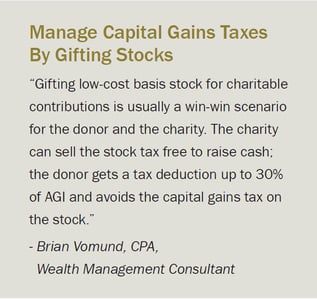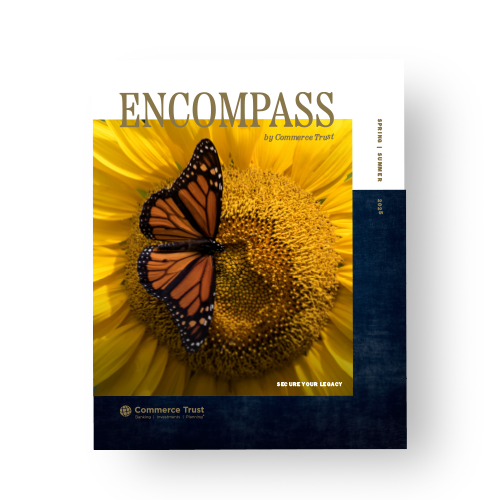You may be thinking about giving gifts to family members and charities during your lifetime, instead of leaving gift amounts in your estate. Gifting during your lifetime would allow you to see recipients enjoy your generosity. Beyond simply being generous, you may also be able to reduce current income and future estate taxes.
There are certain gifting methods that allow you to pass assets to the next generation or charitable organizations in a tax-free manner. With tax laws and guidelines changing from year to year, it is important to revisit your strategy regularly.
Here are some considerations to guide your gifting strategy.
CONSIDERATIONS TO GUIDE YOUR GIFTING STRATEGY Gifting cash to charity Current tax law offers cash contributions to a public charity (if you itemized deductions) to be capped at 60% of your adjusted gross income (AGI). If your contributions exceed the limit, the excess can be carried over for the next five years and will be subject to percentage limitations in the carryover years.
Gifting cash to family
For 2023 the amount of money you can give as a gift to one person without having to file a gift tax return is $17,000 per recipient ($34,000 per recipient if the gift comes from a married couple).
 Gifting stocks and managing capital gain taxes
Gifting stocks and managing capital gain taxes Gifting low-cost basis stock for charitable contributions is usually a win-win scenario for the donor and the charity. The charity can sell the stock tax free to raise cash; the donor gets a tax deduction up to 30% of AGI and avoids the capital gains tax on the stock.
If you are gifting to an individual to help with an upcoming major expense (i.e., college, house, or a new car) and the recipient is in the 12% tax bracket or less, you can also gift low-cost basis stock. Any capital gain will be taxed at a federal tax rate of 0%.
Finally, if you have stock in a loss position, you might consider selling the stock first, recognizing the loss yourself for your own tax benefit, and then gifting the cash.
Gifting from an Individual Retirement Account (IRA) If you are 70½ years of age or older, qualified charitable contributions (QCDs) allow you to transfer up to $100,000 each year directly to charity from an IRA or inherited IRA. If you are age 73 or older, this distribution also counts toward your annual required minimum distribution (RMD) and allows for the amount to be excluded from taxable income.
Gifting high-cost basis assets If you are gifting assets that are intended to be held for the long term, consider gifting high- cost basis assets vs. low-cost basis assets. When gifting an asset, you remove it from your taxable estate — but you also lose the opportunity for a step up in cost basis upon death. If you hold an asset with a low-cost basis when you pass away, the asset receives a step up in cost basis and any capital gain prior to death has been eliminated.
We can help When planning your lifetime gifting strategy for the people and causes you love, it is important to seek the advice of your tax, legal, and financial advisors.
Contact Commerce Trust today — our team of financial professionals can answer questions regarding all your options and help you make informed decisions that are in your best interest.
Commerce does not provide tax or legal advice to customers. Consult with your tax advisor.
 Brian Vomund, CPA
:
May 17, 2023 11:00:00 AM
Brian Vomund, CPA
:
May 17, 2023 11:00:00 AM




